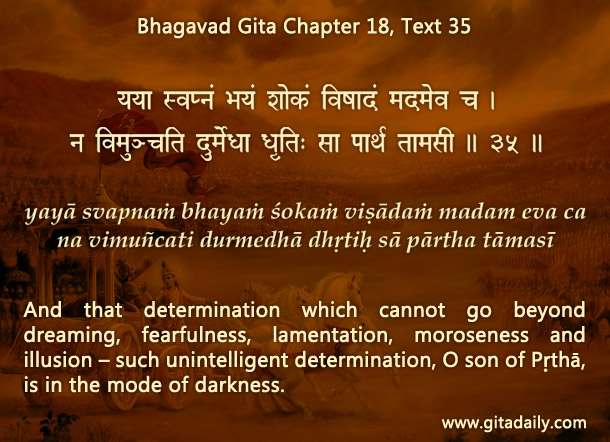Suppose we are driving to a particular place and have ascertained the path to get there. If we keep stopping repeatedly on the deserted road at places with no signposts, we are wasting our time. Stopping at places where we are likely to get reliable guidance reflects caution; stopping anywhere and everywhere reflects confusion.
Similarly, in our life, after we decide and embark on a particular course of action, if we keep second-guessing ourselves, we can’t make any substantial progress, even if we are on the right path. The Bhagavad-gita (18.33) deems such chronic confusion as characteristic of determination in the mode of ignorance.
Certainly, before embarking on any path, especially on a path that promises spiritual growth, we need to use our God-given intelligence to evaluate the worthiness of the destination and the rightness of the path. But after we have assessed and ascertained to the best of our capacity, we need to move forward with confidence and commitment. We can and should take periodic, planned pauses to evaluate our progress. But taking such a second look at things is different from compulsively second-guessing ourselves – the former deepens understanding, the latter deepens confusion.
In life, we may take some wrong decisions, just as while driving, we may take some wrong turns. When we realize that a decision was wrong, we can always do course correction. But if we let doubt and confusion paralyze us, we won’t get anywhere. Embarking doesn’t guarantee our reaching the destination, but failing to start guarantees our never reaching it. Any worthwhile activity, and especially the supremely worthwhile activity of pursuing spiritual growth, requires a leap of faith. This leap needs to be preceded with due deliberation, but then executed with full enthusiasm.
By a prudent combination of caution and confidence, we can march towards our destination.
To know more about this verse, please click on the image
Explanation of article:
Podcast:


Hare Krsna this is reality so true in the words Thank you so much for reminding us how important it is to start now!!!
caution always keeps away confusion